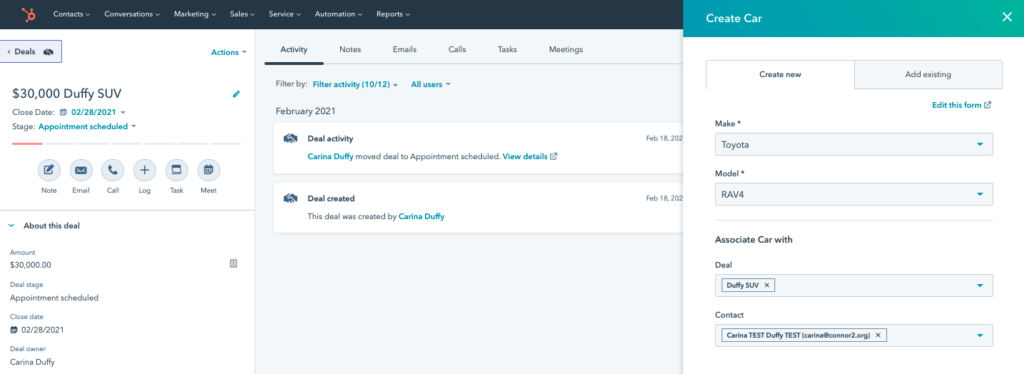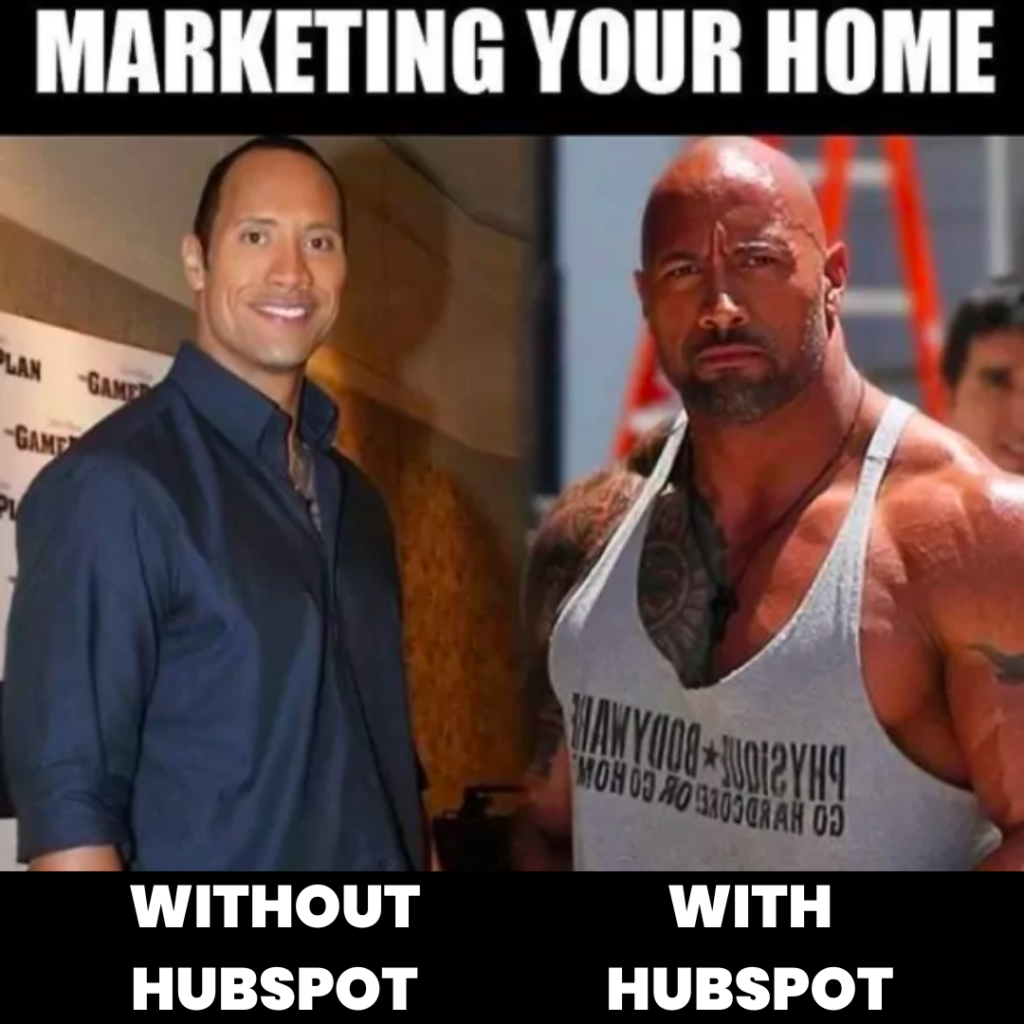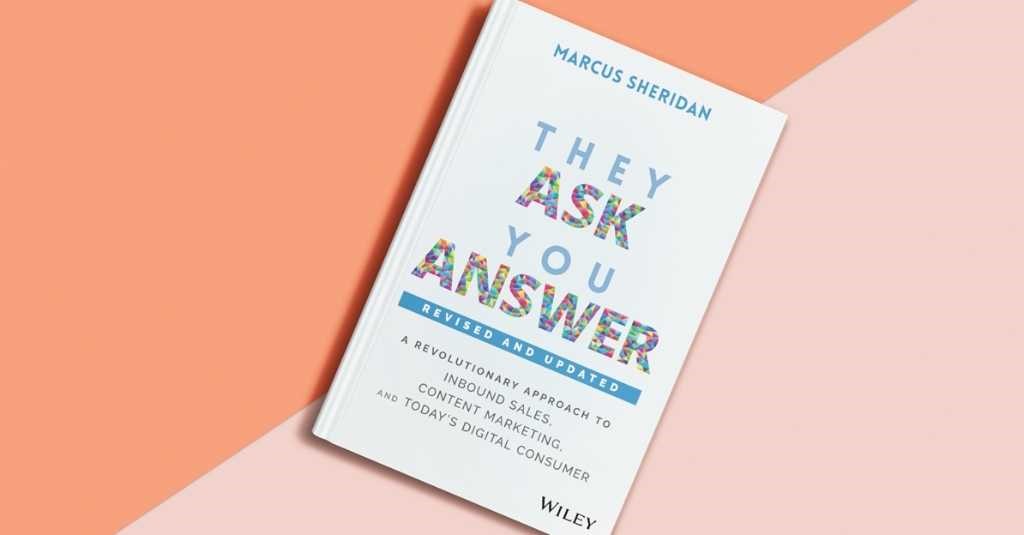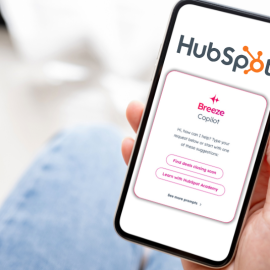Have you ever felt like you’re not using HubSpot to its full potential? HubSpot is a powerful platform with a lot of features, and it can be overwhelming to figure out which ones are most relevant to your business. In this article, you’ll learn about a powerful feature of HubSpot called custom objects and five specific custom objects that can help you take your HubSpot game to the next level.
Imagine you’re a carpenter trying to build a table, but you only have a hammer and nails. It’s clear that you’re missing some essential tools to get the job done right. The same goes for your sales team.
If you’re using HubSpot but not taking advantage of custom objects, it’s like trying to build that table with just a hammer and nails. You’re limiting your team’s ability.
In saying that, custom objects might not be right for your business.
Most importantly, custom objects can only be utilised by users on the Marketing or Sales Enterprise plans, so if you’re not on one of these plans, this feature won’t be available to you.
By the end of this article, you’ll know whether your team should use custom objects and the best five to take advantage of.
What are HubSpot custom objects?
In the world of HubSpot, an object is a piece of data that the platform uses to organise information. These objects act as the building blocks for your CRM, allowing you to track and manage your interactions with customers and leads.
From a development perspective, objects are what allow data to communicate with each other, making it possible to build complex systems and automate key processes.
By default, HubSpot users have access to several standard objects, including:
- Contacts
- Companies
- Deals
- Tickets
However, depending on your subscription level, you may also have access to additional objects, such as:
- Calls
- Conversations
- Products
- Payments
But for those who want even more customisation over their CRM data, custom objects are the way to go.
A HubSpot custom object is a type of record that you can create in HubSpot CRM to store data that isn’t included in the default objects like contacts, companies, deals, tickets etc. Basically, custom objects let you store data that can’t be bucketed into categories like contacts, companies, deals (and other standard objects).
They offer a level of flexibility and customisation that standard objects simply can’t match. With a custom object, you can tailor your CRM to your unique business needs, creating fields, properties, and associations that fit your workflows perfectly.
This means that if you create a custom object to record a specific piece of data in your business, you can then create further properties within that object and associate it to other objects that already exist in HubSpot.

A really simple example could be a real estate agency.
In this example, the agency uses the standard HubSpot objects, such as ‘Deals’ and ‘Contacts’, however they have created a custom object called ‘Houses’. This object stores information on their properties and associates contacts, deals and other objects to their houses. Let’s do a deeper dive into this.
Let’s say “John” fills out a form on their website and shows interest in purchasing a home. First, John becomes a contact in HubSpot and is associated to one ‘house’.
Now, let’s say John submits a form showing interest in three specific houses. Since each of these houses sit in HubSpot as custom objects, the contact (John) is now associated to these three houses. This gives power to sales reps, because they now know exactly what their prospect is interested in.
After 4 months, John purchases a house, and in HubSpot (via a deal), the agency can see that John bought one of the houses he originally looked at. The agency can see that John originally came from a Facebook Ad, and with this data, they can make more informed paid marketing decisions in the future.
In this example, the agency has used a custom object to:
- Track interest and sales around their product
- Associate contact to the custom object, enabling sales reps to have visibility around how contacts have interacted with specific products
- Attribute sales of their product to standard objects, such as contacts, and original sources, such as Facebook Ads, giving their marketing team the knowledge required to improve results
Note that this is a very simple example of how custom objects could be used. Realistically, you should be able to achieve this and far more if you use custom objects. For example, you could utilise custom objects to store data around your internal processes, services, and products. And then, you could track, report, and automate based off your custom objects – every feature you currently use with HubSpot, you can use with the custom object you create. That’s why it’s so powerful.
Now you know what custom objects are and how powerful they can be, but just because that’s the case, it doesn’t necessarily mean you should use them.
Is a HubSpot custom object for your team?
If all of these are true, then you should start using HubSpot Custom Objects:
- You can afford either the Marketing or Sales Enterprise plan on HubSpot
- You have a unique data set that you need displayed in your CRM which does not fit in any of the standard objects that HubSpot offers by default
- You have the funds to hire a developer or external team to set this up for you
You really don’t want to be wasting your time trying to create a custom object when there’s a simpler solution. Before starting an initiative to create custom objects, your best bet would be to ask an expert if you can store the data you’re looking to store in a standard HubSpot object.
5 HubSpot custom objects you should be using
There are five use cases where we’ve seen the successful use of custom objects in HubSpot:
- Properties for real estate industry
- Data around families
- Products and services
- Internal processes
- Integrations
Let’s delve into each of these.
Properties for real estate industry

If you’re in the real estate industry, tracking data around properties might be something you want to achieve. Each house would be stored in HubSpot as a custom object.
On top of this, each house can have further custom properties for added information. For example, you might store the house value, number of bedrooms and postcode within each house in HubSpot. Doing this will allow you to filter data based on these properties.
This can be beneficial for a number of reasons:
- Gives you visibility around all of your data in one system. For example, you can see which houses have sold, which houses have not sold over x period of time and more.
- Ability to associate contacts with houses. For example, you can see when specific contacts purchase a house, show interest in a house, or sell a house, which ultimately gives your sales reps more power.
- Track and attribute success. For example, you can track which marketing channels led to actual revenue generated from sales, giving you the knowledge on where to invest for better results.
- Create marketing and sales activities based on data around houses. For example, it is possible to create email automations for users who show interest in specific houses.
There’s an almost unlimited number of possibilities, but these are some of the key things you can achieve when using a custom object to store data around each of your houses.
Data around families
If you want to store data around families, custom objects are a great way to go. This can be really beneficial when you have multiple contacts in your database all part of the same family, so you can associate contacts as part of the same family, similar to how you might have multiple contacts associated with one deal.
When you look at the difference between this and houses as a custom property, it’s really the labels being used and the data being stored underneath those labels. For example, instead of “houses”, we’re calling it “families”, and instead of “house value” as a property, you might use “number of family members”. The data is different, and the categories (or properties) used to hold that information have different names, but the concept is very similar.
Products and services
You can create custom objects around products or services you sell. For example, if you sell courses, or consultancy, or legal services, you could create custom objects for these services.
This is extremely powerful, because you can directly link these to your accounting system, allowing you to see data around financial information. For example, if you sell five courses, and each of these are stored as custom objects in HubSpot, as they’re linked with your accounting system, you can track profitability, expenses, and revenue around each of these courses. Then, you can use this data to create specific marketing automations, or associate that data with contacts or other objects in HubSpot. You might for example create a marketing automation to send an email to all contacts who meet a certain criteria if the profitability of a course is positive. The possibilities are endless.
Internal processes
We’ve seen internal processes stored within HubSpot as custom objects too. For example, you might create a custom object for a process around onboarding new customers.
With this, you can then send automated internal emails to your customer service team members and track how many of these team members actually open and click through to the process to get acquainted with it.
Then, you can create a list in your HubSpot database to see all contacts a part of your internal team that haven’t opened this email, giving you an indication of which team members may not be successfully adopting the process.
This is just one example of what you can achieve, and again, the possibilities are endless. Remember, you can store custom properties around each custom object, so the information you store around each internal process will ultimately determine how you use that custom object in HubSpot.
Integrations
Custom objects open the door for developers to integrate entire systems onto HubSpot and store custom data. For example, if you had to integrate realestate.com.au with HubSpot, you could achieve this through custom objects. Let’s take a deeper look at this example.
Real Estate Australia owns the software and allows real estate agents to list the properties on their app. When a user applies on a house by filling out a form, they aren’t enquiring on the real estate agencies platform, but instead on Real Estate Australia’s platform.
The real estate agencies objective is for the data to go straight into their CRM so their sales reps can handle it. When you’re dealing with real estate agencies that have hundreds of houses, having data set up with custom objects in this way saves copious amounts of time with reporting, admin and more as you can set up workflows to manage a vast majority of tasks.
We’re just scratching the surface around what you’d be able to achieve with an integration like this.
How to set up custom objects?

So, you’ve decided that custom objects are right for you, and you’re ready to get started.
In order to build custom objects, you’d need to hire a developer or external team to take care of this for you. HubSpot has provided a guide for developers to create custom objects.
If you’re looking for a trusted external team to take care of this for you, get in contact with us. Being HubSpot Diamond Partners, we’re well versed in everything to do with HubSpot.
If you still need to do your research first, we’ve compiled a list of the best HubSpot agencies in Sydney. (p.s. we haven’t included ourselves, so know you’re reading an unbiased piece of content!)












